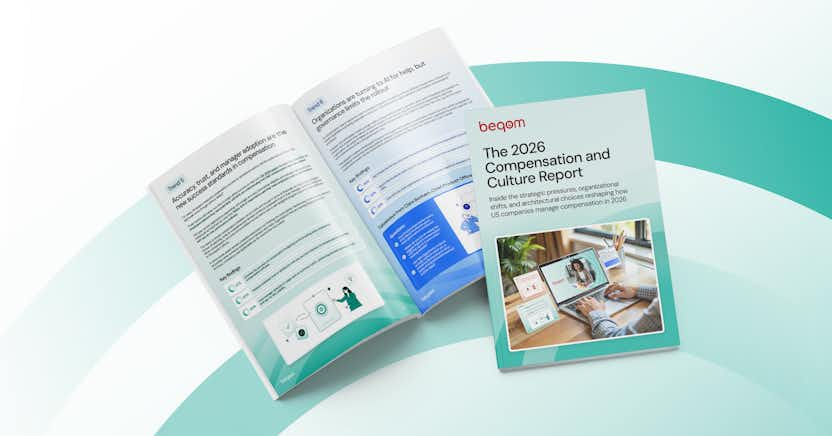3 Strategic Ways Women Can Ask for More Feedback at Work

Learn more about the following beqom products
In order to succeed, employees need feedback—both good and bad—so they can leverage their strengths, improve their skill set, and simply perform better at their jobs.
However, according to research by Harvard Business Review, men get more actionable feedback on the job than their female colleagues do. Similarly, research by Women in the Workplace highlights that women are 20% less likely to receive actionable feedback that can contribute to their performance and growth at work.
How can women get the feedback they need to progress in their careers?
Without any clear guidance from their managers, women must work harder to understand how to meet and exceed the expectations of their roles. This can be a daunting task and one their male counterparts are not faced with. Although this is, at its core, a management issue, and one that should be addressed by HR when examining their company’s culture, it still doesn’t change the fact that this is ongoing for many women, in many companies across the globe.
Therefore, it’s vital that women entering the workforce have the confidence to ask for feedback; but not just generic feedback that fails to give insight into one’s performance or skills. To get substantive feedback that is actually useful, you need to be strategic in how you ask for it.
To get the feedback you need to grow, consider these three strategies:
1. Choose your timing
Don’t ask your boss for feedback randomly, like when you run into them in the hall. Feedback should be an ongoing, two-way conversation that takes place in a thoughtful environment and happens more frequently than annual performance reviews. Use one-on-one meetings and inflection points in your work to get the feedback you need.
2. Consider your sources
Your manager is not the only person you work with. Consider who else in the organization can provide you with clear and actionable insights about your performance. For example, peers, mentors, or contacts you trust are good sources to consider when looking for honest feedback.
3. Lead the conversation
Because we know that women get less feedback to begin with, it’s important for you to proactively and strategically seek out the advice that will help you in your role. Ask questions that will allow your manager to provide more specific information such as, “What are the things I do well?”, “How do my strengths align with the organization’s goals?”, or, “Is there anything I can do differently that would improve my performance?”
Feedback leads to growth
Frequently, managers can be hesitant when it comes to giving women negative feedback due to concerns about how they will respond. More specifically, they fear their feedback will be interpreted as “mean” or “hurtful.” These assumptions, largely built on gender-based stereotypes, can have direct negative repercussions on women’s careers. But remember, if you don’t ask for the feedback you need in order to grow and advance your career, you simply will not get it.
Feedback can also lead to money
One last point, while we are talking about conversations with peers and managers. beqom’s 2023 Leveling the Paying Field report shows that the pandemic and inflation have made employees more likely to talk about pay with colleagues, but less likely to talk about pay with managers. At the same time, the research shows that men are more likely than women to ask for—and receive—raises. According to the research, in the US, nearly 3 in 5 asked their employer or manager for a raise in the past year, but more men (51%) than women (42%) who made the request were successful in receiving one.
Women should not be afraid to discuss pay and ask for fair compensation, but pay conversations are more likely to be productive when preceded by requests for feedback. Asking for feedback shows that you truly want to improve your performance and grow. Compensation is a two-way street; your part is to be committed to providing value to the organization, and the way to show that commitment is to request feedback and use it to develop, grow, and enhance your contribution to the company’s goals. That provides the background for a conversation about compensation.
Are you looking to improve how you give and receive feedback throughout your organization? Let beqom help you by booking a meeting with one of our performance management experts here.
Download beqom’s 2023 Leveling the Paying Field Report to get a sense of employee experiences and perspectives on the gender pay gap, pay transparency, and other aspects of compensation.








